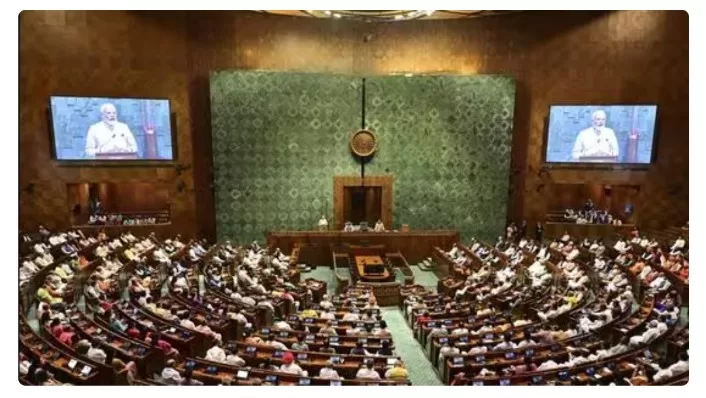New Delhi: The recent decision by the Supreme Court to scrutinize a two-decade-old legal challenge concerning the continuation of reserved seats for Scheduled Castes (SCs) and Scheduled Tribes (STs) in the Lok Sabha and state legislatures coincides with the Narendra Modi government’s introduction of a constitutional amendment to reserve one-third of seats for women in both houses of the legislature.
Article 330 of the Constitution provides for seat reservations for SCs/STs in the House of the People, while Article 332 extends a similar provision to legislative assemblies.
On September 20, a Constitution bench, led by Chief Justice of India Dhananjaya Y Chandrachud, framed two critical issues for final determination. The first concerns the validity of the 104th Amendment Act of 2019, which extended the reservation for another 10 years (until January 25, 2030), while the second pertains to Parliament’s authority to amend Article 334 to continue such reservation.
Article 330 of the Constitution provides for seat reservations for SCs/STs in the House of the People, while Article 332 extends a similar provision to legislative assemblies. Article 334 stipulates that the reservation of seats for these two communities shall cease after the expiration of the period specified in this provision. Initially, it imposed a 10-year limit for the cessation of the reservation, which was periodically extended. The most recent extension occurred through a constitutional amendment in 2019.
The Union government, on that day, expressed its determination to defend the validity of the 2019 amendment and Parliament’s authority to grant such extensions, stating that reservations for SCs/STs in the Lok Sabha and state legislatures must continue.
While the Constitution bench is scheduled to begin the final adjudication of the matter on November 24, the historical context of seat reservations for SCs/STs, considered a vital affirmative action tool against historical and social injustices against these communities, coupled with the legislative and judicial history, offers intriguing insights into the issue.
Pre-Independence and Constituent Assembly Debates:
The idea of providing separate representation to SCs was proposed before India’s independence when the British Prime Minister wrote a letter to Mahatma Gandhi on September 8, 1933. Gandhi opposed the proposal and went on a fast unto death.
A report by the advisory committee on minorities in January 1947 recommended political safeguards for minorities through seat reservations based on population. This recommendation led to the inclusion of reserved seats for Muslims, SCs/STs, and Indian Christians in the draft Constitution. However, reservations were initially limited to a 10-year period.
In May 1949, the advisory committee, led by Sardar Vallabhbhai Patel, recommended the removal of reservations for minorities, except for SCs/STs. B.R. Ambedkar, the drafting committee chairman, proposed amending the draft articles to eliminate reservations for Muslims and Indian Christians, and this proposal was adopted by the Constituent Assembly on August 25, 1949.
Ambedkar, while preferring a longer timeframe, suggested sticking to the 10-year limit, believing that if SCs/STs had not progressed in 10 years, they would find ways to continue receiving reservation benefits. The assembly decided that only a constitutional amendment, not parliamentary power, could change the reservation period.
Constitutional Amendments and Reserved Seats:
The first amendment to the reservation period occurred through the Constitution (Eighth Amendment) Act of 1959, which extended it from 10 to 20 years. Subsequent amendments further extended the reservation, with the most recent extension through the 104th Amendment Act in 2019. This amendment was necessary as the reservation was set to expire on January 26, 2020.
Currently, of the 543 seats in the Lok Sabha, 84 are reserved for SCs, and 47 for STs. At the state level, 614 MLAs belong to SCs, and 554 MLAs belong to STs out of a total of 4,120 seats. These numbers are based on the 2011 Census, which reported SCs at 16.7% of the population and STs at 8.6%.
The Supreme Court’s decision to examine the validity of these reservations will ignite a comprehensive debate encompassing constitutional, legal, and socio-economic aspects, shaping India’s democratic institutions.







